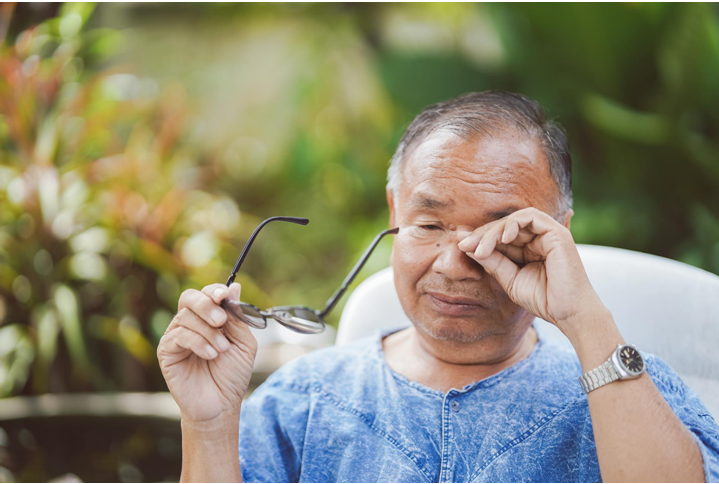
Cataracts, a prevalent eye condition globally, affects millions of people across all ages. This condition arises when the lens in the eye becomes hazy, causing blurred vision, difficulty seeing in dim light, and a drop in the ability to distinguish colours. While Cataracts are commonly related to ageing, there are practical measures that you can adopt to reduce your vulnerability to this condition and delay its onset.
This article delves into various approaches to the prevention of Cataracts and sheds light on some misconceptions associated with their prevention.
Ways to Reduce Your Risk of Cataracts
- Diet Changes: A healthy and balanced diet can contribute to the prevention of Cataracts. This means including fruits, vegetables, oily fish, and whole grains in your meals to get essential nutrients like antioxidants, vitamins (A, C, and E), minerals, and phytochemicals. Research has revealed that these nutrients can reduce the risk of Cataract progression and promote good eye health.
- Protection from UV radiation: Shielding your eyes from harmful UV radiation is crucial in Cataract prevention. You can shield your eyes by wearing a wide-brimmed hat, scarf, or dupatta. Using polarised sunglasses, photochromatic lenses, or UV-blocking contact lenses can also minimise UV-induced eye damage. Remember that UV radiation can increase the risk of Cataracts and (Age-Related Macular Degeneration) AMD, so taking precautions is crucial.
- Quit smoking: Smoking is a destructive habit that can lead to various health risks, such as an increased chance of developing Cataracts and AMD. Smoking releases free radicals in the body, which can cause oxidative stress and damage the lens of the eye. Quitting smoking can significantly decrease the risk of Cataract formation and progression.
- Blood Sugar Control: Maintaining optimal blood sugar levels is essential for preventing Cataracts, especially for people with diabetes who may develop them at a younger age. High blood sugar levels can speed up Cataract formation and also raise the risk of diabetic retinopathy, which can lead to vision loss. Keeping blood sugar levels in check is important to reduce these risks.
- Avoid trauma: Regardless of age, eye injuries can result in traumatic Cataracts. To avoid such injuries, it is important to take appropriate preventive measures. It is essential to use protective eyewear, such as glasses and eye shields when engaging in hazardous activities, whether at work or play. By being cautious and proactive, you can reduce the risk of eye trauma and avoid future Cataract formation.
- Avoid excessive use of steroids: Improper use of steroids can lead to adverse effects like the formation of Cataracts. To avoid this, it’s crucial to only use steroids under medical guidance and supervision. Consulting with your doctor about alternative treatment choices like steroid-sparing drugs can decrease the risk of Cataracts linked to steroid use.
Myths Related to the Prevention of Cataracts
There are several myths surrounding Cataract prevention that need to be debunked:
1. Myth: Eating carrots alone can prevent Cataracts.
Fact: While carrots are a good source of vitamin A, which is vital for eye health, they cannot prevent Cataracts on their own. A well-balanced diet rich in various fruits and vegetables is necessary for overall eye health and Cataract prevention.
2. Myth: Eye exercises can prevent Cataracts.
Fact: Eye exercises may improve eye muscle strength and reduce eye strain, but they do not prevent Cataracts. Cataracts are primarily age-related and influenced by other factors, as mentioned earlier.
3. Myth: Cataracts can be dissolved or removed using eye drops.
Fact: Once a Cataract forms, eye drops cannot dissolve or remove it. The only adequate treatment for Cataracts is surgical removal.
What If I Still Get Cataracts?
Despite taking preventive measures, Cataracts can still develop due to factors beyond our control. If you do develop Cataracts, the first step is to visit your eye doctor. In the early stages, glasses may be prescribed to help with vision. However, as Cataracts progress and begin to meddle with your daily activities, such as driving or reading, surgery may be recommended.
Cataract surgery is a safe and routine surgery that is performed in eye clinics worldwide. During the surgery, the clouded natural lens is removed and replaced with an artificial intraocular lens (IOL). This surgery is typically performed as a day-care surgery, which means that patients can return home the same day. Your eye doctor will guide you in choosing the most appropriate type of IOL for your visual needs, including distance and near vision. This can help to restore your vision back to normal or even improve it beyond what it was before the development of Cataracts.





